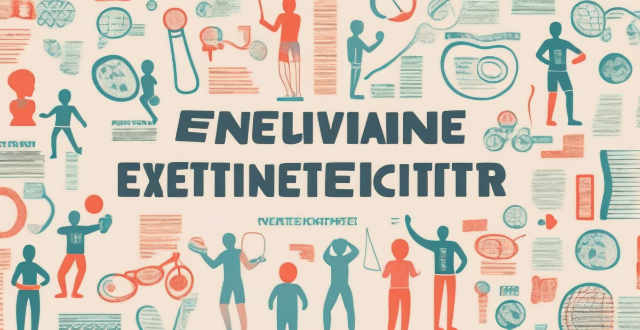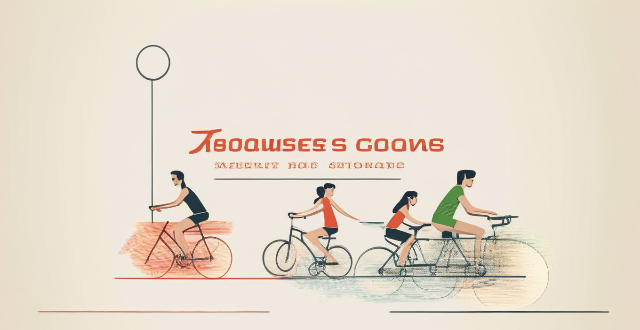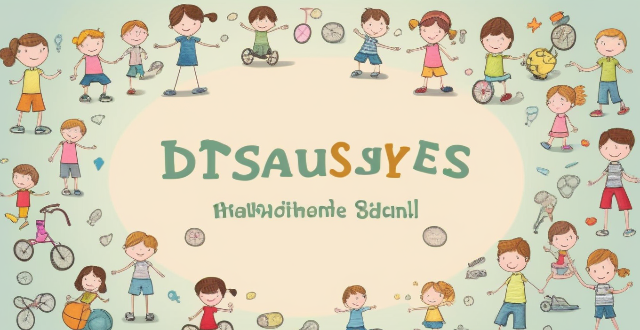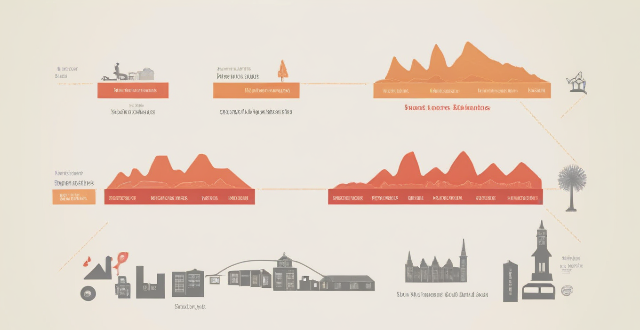Character Literary

How does sports influence literary creation ?
The influence of sports on literary creation is explored in this article. Sports have provided writers with motivation and inspiration, introduced themes and characters, contributed to realism and atmosphere, and served as a vehicle for social commentary. Examples from various literary works are given to illustrate these points.

How do sports help in building character and personal growth ?
The text discusses the various ways in which sports can contribute to building character and promoting personal development. It highlights how sports can help develop discipline, promote teamwork, cultivate perseverance, encourage leadership, enhance self-esteem, teach adherence to rules, facilitate social interaction, improve physical health, and teach individuals how to handle pressure. The author emphasizes that the lessons learned through sports participation can translate into valuable life skills that are essential for success both in sports and beyond. Overall, the text suggests that sports offer an array of benefits that stretch far beyond physical fitness and play a significant role in shaping character and fostering personal growth.

What role does sports play in the development of character in literature ?
In literature, sports often serve as a metaphor for life and can play a significant role in the development of character. This is because sports provide a framework for exploring themes such as competition, teamwork, perseverance, and overcoming adversity. Here are some ways in which sports can shape characters in literature: - **Competition**: Sports can motivate characters to strive for excellence and push their limits. Rivalries between characters can create tension and conflict, driving the plot forward. The experience of winning or losing can teach characters about humility, grace, and resilience. - **Teamwork**: Sports often require characters to work together towards a common goal, fostering cooperation and communication skills. Characters may have to make sacrifices for the sake of the team, demonstrating selflessness and loyalty. Sports can provide opportunities for characters to take on leadership roles and develop leadership skills. - **Perseverance**: Sports stories often involve characters facing challenges and setbacks, but ultimately persevering through them. Characters may demonstrate grit and determination in pursuing their athletic goals, reflecting their overall character traits. The ability to bounce back from failure or injury can showcase a character's resilience and adaptability. - **Overcoming Adversity**: Sports can present physical challenges that characters must overcome, symbolizing larger obstacles in their lives. Facing adversity on the field or court can lead to emotional growth and maturity in characters. For characters who are athletes, sports can be a crucial part of their identity formation and self-discovery. Examples in literature include "The Natural" by Bernard Malamud, "Friday Night Lights" by H.G. Bissinger, and "Ender's Game" by Orson Scott Card.

What is the relationship between sports and creativity in literature ?
In literature, sports and creativity often intertwine to enrich storytelling. Sports provide a backdrop for character development, narrative structure, and themes that mirror life's struggles. Creative writers use literary devices and unique perspectives to enhance the portrayal of sports, offering emotional connectivity with readers. Examples like "Ender's Game," "Farewell to Arms," and "Personal Best" demonstrate how sports can serve as metaphors and settings for deeper explorations of human nature and society. This intersection allows authors to craft works that resonate on multiple levels, transcending genre boundaries.

What is the role of sports in character building during adolescence ?
The article discusses the significant role sports play in character building during adolescence. Sports contribute to physical health and self-discipline, teamwork and social skills, goal setting and perseverance, responsibility and time management, emotional intelligence and stress management abilities. Engaging in sports not only benefits young individuals physically but also shapes their personality and values, preparing them for success in all aspects of life.

What role do sports play in character building for children ?
The article discusses the various ways in which sports contribute to the overall personality development of children. Sports ensure physical health and well-being, teach valuable life skills such as teamwork, leadership, communication, and goal setting, impact emotional development by boosting self-esteem, teaching resilience, and handling pressure, provide opportunities for socialization, and play a crucial role in moral development by instilling values such as integrity, respect, and responsibility. The author concludes that sports are not just about physical fitness but are powerful tools for character building in children.

What role does sports play in shaping an individual's personality and character ?
Sports play a crucial role in shaping an individual's personality and character. They foster the development of social skills such as teamwork, leadership, and resilience. Participating in sports also builds self-confidence through achievement and overcoming fears. Additionally, sports promote discipline and time management by requiring consistent practice and training schedules. Goal setting is another important aspect of sports that teaches individuals about planning and focus. Finally, sports encourage healthy lifestyle habits by promoting physical fitness and raising awareness about proper nutrition. Overall, sports provide valuable experiences that contribute to personal growth and success in various aspects of life.

What character traits are essential for effective student leadership, and how can they be encouraged ?
Effective student leadership requires character traits like integrity, responsibility, empathy, courage, and adaptability. These traits help leaders inspire, motivate, and guide peers towards common goals. Encouraging these traits involves leading by example, open communication, ethical decision-making, assigning tasks, following up on progress, recognizing effort, active listening, promoting diversity, developing emotional intelligence, risk-taking opportunities, conflict resolution techniques, building a supportive environment, enhancing problem-solving skills, promoting continuous learning, and establishing feedback mechanisms.

How do celebrity book clubs differ from regular book clubs ?
Celebrity and regular book clubs both aim to promote reading but differ in their goals, accessibility, interaction style, and impact on readers and authors. Celebrity clubs are open, use social media, and have a wide reach, while regular clubs are more private, engage in deeper discussions, and foster close-knit communities.

In what ways do strong female characters in literature shape our perceptions of women's roles and capabilities ?
Strong female characters in literature challenge traditional gender roles and showcase the capabilities of women beyond their stereotypical representations. They inspire women readers, defy gender stereotypes, promote diverse representation, celebrate female relationships, break societal barriers, and expand horizons. These characters shape our perceptions of women's roles and capabilities and promote gender equality.

What role does art play in cultural exchange ?
Art is a powerful medium for cultural exchange, promoting understanding and empathy between different societies. It transcends language barriers and connects people on a deeper level. Art can facilitate mutual understanding by exposing individuals to diverse perspectives and experiences. Visual arts provide a visual representation of culture, while performing arts offer a dynamic form of cultural exchange. Literary arts explore the inner workings of a culture through its stories and narratives. Art also promotes creativity and innovation within cultures, encouraging experimentation with new ideas. Artistic collaborations between artists from different cultures can result in groundbreaking works that blend traditional elements with modern influences. Art serves as a means of preserving cultural heritage, documenting the history, traditions, and customs of a society. Museums and galleries showcase art from different cultures, promoting cultural awareness and appreciation among the public. Cultural festivals celebrate the artistic achievements of different cultures through various forms of performance. Overall, art plays a vital role in cultural exchange by enhancing mutual understanding, promoting creativity and innovation, and preserving cultural heritage.

What is a celebrity book club ?
Celebrity book clubs are groups led by famous people or public figures to discuss books. These clubs aim to promote reading and encourage exploration of new genres and authors. Features include leadership by a well-known personality, open membership, varied book selection, flexible discussion formats, and active engagement through social media. Benefits of joining such clubs include exposure to new genres, networking opportunities, enhanced reading experience, and access to celebrity insights. Overall, celebrity book clubs offer a unique way to broaden literary horizons and connect with fellow readers.

How can schools incorporate climate change education into their curriculum ?
Incorporating climate change education into school curriculums is crucial for preparing students to address the global issue of climate change. Schools can integrate climate change concepts into existing subjects like science, social studies, literature, and mathematics. Science and geography classes can teach about the causes and effects of climate change, while social studies and history courses can provide a historical perspective on environmental challenges and analyze current policies. Literature and language arts classes can study works that address environmental themes, and mathematics and technology courses can explore data analysis and innovative solutions to combat climate change. Interdisciplinary approaches such as project-based learning and service learning can further enhance climate change education. Research projects and community outreach initiatives allow students to apply their knowledge in real-world settings, promoting interdisciplinary thinking and fostering a sense of personal responsibility for contributing to positive change. Overall, incorporating climate change education into school curriculums is essential for empowering students with the knowledge and skills needed to make informed decisions and take action towards a more sustainable future.

How do sports documentaries differ from fictional sports films in terms of audience reception ?
Sports documentaries and fictional sports films differ in audience reception due to their distinct approaches to storytelling, emotional impact, and overall purpose. Sports documentaries focus on real-life stories, providing an authentic portrayal of athletes, teams, and events, while fictional sports films prioritize entertainment value, often incorporating drama, comedy, or romance elements alongside sports action. Documentaries typically follow a linear narrative structure, focusing on a specific timeline or event, while fictional films often feature complex plot twists and character arcs that add depth to the story. Both genres have their merits and can leave lasting impressions on audiences in different ways.

How does background knowledge impact reading comprehension ?
Background knowledge significantly impacts reading comprehension by aiding in schema creation, vocabulary recognition, contextual understanding, inferencing, and increasing engagement with the material.
![How important is education for [insert celebrity name]'s personal and professional growth ?](/images/3nde/ba2ae69b-8180-4ecc-b44b-5004ff476ef3.png)
How important is education for [insert celebrity name]'s personal and professional growth ?
This topic summary delves into the pivotal role of education in shaping the personal and professional growth of [celebrity name]. It underscores how early education laid the groundwork for their character, social skills, and ethical values. Higher education is highlighted as a stepping stone towards specialized knowledge, networking, and career advancement. The commitment to lifelong learning beyond formal education settings is also emphasized, showcasing continuous efforts to stay relevant and adaptable. The discussion concludes by reiterating the transformative impact of education on [celebrity name]'s journey, suggesting its universal significance in fostering personal and professional development.

How do fans react to spoilers and leaks in their favorite TV shows ?
Fans of television shows have a love-hate relationship with spoilers and leaks. On one hand, they crave the excitement and anticipation that comes with watching their favorite show unfold week after week. On the other hand, they can't help but be curious about what happens next, which often leads them to seek out spoilers and leaks online. When fans come across spoilers or leaks, their emotional response can vary widely. Some may feel angry and frustrated, while others may feel excited and eager to discuss the new information with fellow fans. Regardless of their initial reaction, many fans will turn to online forums and social media to discuss and speculate on the spoilers or leaks they've encountered. This can lead to heated debates and passionate discussions about the potential implications of the revealed information on the show's future plotlines. Spoilers and leaks can also impact the creative freedom of showrunners and writers, as they may feel pressured to change their plans based on fan reactions to leaked information. This can lead to a less organic storytelling experience and potentially diminish the quality of the show overall. Additionally, while some fans may be more likely to tune in if they know there are major plot twists or character developments coming up, others may choose to stop watching altogether if they feel like the show has been ruined by spoilers or leaks. This can ultimately impact ratings and viewership numbers for the show. In conclusion, fans have a complex relationship with spoilers and leaks in their favorite TV shows. While some may enjoy the thrill of knowing what's coming next, others prefer to experience each episode as it airs without any prior knowledge. Ultimately, it's up to individual fans to decide how much they want to know about their favorite shows before watching them.

Can you explain Australia's points-based immigration system ?
Australia's points-based immigration system is a method to select skilled immigrants for permanent residency. The system assigns points based on age, education, work experience, and language proficiency. It aims to attract skilled workers who can contribute to the country's economy and fill labor market gaps. Applicants must meet health and character requirements and are placed into a pool of candidates for selection. The system provides transparency and fairness in the immigration process by using objective criteria to evaluate applicants.